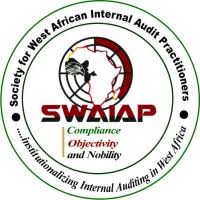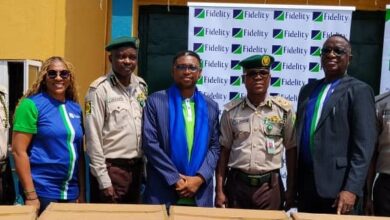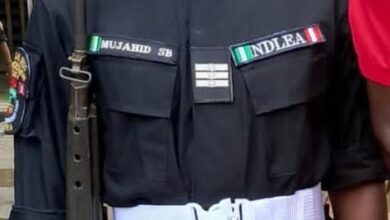SWAIAP holds International Conference, harps on role of Assurance Service Provider

SWAIAP holds International Conference, harps on role of Assurance Service Provider
By Cyriacus Nnaji
The Society for West African Internal Audit Practitioners (SWAIAP) has held its Annual Conference, where key stakeholders from the public and private sectors, including international guest speakers gathered to deliberate on the role of internal auditing in promoting good governance, transparency, and combating economic and financial crimes.
In a communiqué, the conference, which was held on 4th December, 2024, in Abuja, was marked by insightful presentations and discussions, which focused on enhancing the capacity of internal auditors to ensure effective governance, strengthen internal controls, and address emerging risks in organizations.
Key highlights of the conference include discussions on the Independence of Internal Auditors. A major point of discussion during the conference was the independence of internal auditors as discussed by Accountant General of Federation represented by Mr. Peter Chizea. Stakeholders agreed that internal auditors must adhere to legal frameworks and professional standards to maintain objectivity and impartiality in their roles. It was emphasized that their independence is crucial for ensuring effective governance and accountability within organizations.
Mr. Ola Olukoyede, Executive Chairman of the Economic and Financial Crimes Commission (EFCC), emphasized the pivotal role internal auditors play in enhancing good governance and combating economic crimes. He proposed a collaborative framework between the EFCC and internal audit functions across both public and private sectors, with a focus on risk assessment, shared intelligence, joint investigations, and training. Olukoyede called for a united effort to tackle corruption and promote transparency.
The President, SWAIAP, Amb. Patrick Nzechukwu, raised the issue of internal audit bill (Nigerian Internal Audit Regulatory, Practice, and Administration Agency and Other Related Matters Bill) promoted by SWAIAP as a crucial step in strengthening Nigeria’s anti-corruption efforts. The bill proposes the creation of an independent regulatory agency for internal auditing, which would ensure the alignment of Nigeria’s practices with global standards, promote professional development, and create job opportunities. It aims to formalize and regulate internal auditing, bridging gaps in the current legal framework.
On SWAIAP’s Mission and Role in Advancing Internal Auditing, SWAIAP reaffirmed its commitment to institutionalizing internal auditing across West Africa as a tool for combating corruption and enhancing organizational performance. The society addressed key challenges, including the neglect of preventive strategic tools like internal auditing, the lack of collaboration between anti-corruption agencies, and the overreliance on foreign certifications. “SWAIAP continues to offer localized, affordable training and certifications to empower professionals in internal auditing, risk management, compliance, governance and related assurance service providers”.
International speakers at conference are Mr. Tola Vong (Cambodia), Professor Andreas G. Koutoupis (Greece) and Mr. Hossam El Shaffei (Egypt).
Tola Vong from Sword & Shield Consulting, Cambodia highlighted the integral role of internal audit in assessing governance structures, risk management processes, and internal controls. He discussed internal audit’s role in fraud prevention, risk evaluation, compliance monitoring, and advising on strategic objectives. He further underscored the importance of internal audit in addressing emerging risks, such as cyber security and geopolitical challenges.
While Professor Andreas G. Koutoupis from Greece elaborated on the synergy between governance, internal control, and compliance within organizations. He explored the evolving role of internal auditors, particularly in the context of Environmental, Social, and Governance (ESG) factors, and the transformative impact of AI technology on auditing practices. He also highlighted the expanding role of Audit Committees in overseeing not just financial reporting but also risk management, internal controls, and non-financial information related to sustainability.
Mr. Hossam El Shaffei’s paper which was presented by Mr. Hector Ekeocha, the Director of SWAIAP GRC, elucidated how a thorough understanding of the role of the audit committee as distinct from other Board Committees can help its members to foster governance and drive the enforcement of governance codes in entities. The audit committee by their composition and roles are better positioned to ensure oversight of financial reporting, internal controls, compliance and risk management; which constitute major governance requirements. The paper also mentioned some challenges faced by the audit committees to include balancing speed and thoroughness, navigating the complex regulatory environment and ensuring effective communication with Board and management.
In Conclusion, the conference concluded with a strong call for greater collaboration between internal auditors, anti-corruption agencies, regulatory bodies, and other stakeholders to drive reforms in governance and accountability.
The need for robust legislative support for internal auditing, ongoing professional development, and the integration of modern tools like AI in auditing was recognized as essential to addressing the complex challenges organizations face in today’s fast-evolving landscape.
In light of the discussions, SWAIAP will continue to advocate for the development of a comprehensive internal audit framework in West Africa, aimed at improving risk management, control, and governance. The society will also intensify efforts to expand its training programs, certifications, and consultancy services to equip internal auditors with the necessary skills to support organizations in achieving transparency, accountability, and sustainable success.




